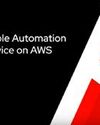
As per a report from GrandViewResearch.com, there is a huge scope for blockchain based implementations. Between 2022 and 2030, the market for blockchain technology is projected to increase at a compound annual growth rate (CAGR) of 85.9 per cent, from a market size of US$ 5.92 billion in 2021. Increased venture capital investment for blockchain technology startups is one of the reasons for this market expansion. For instance, blockchain technology supplier Circle Internet Financial Ltd revealed in May 2021 that it had secured US$ 440 million in investment from institutional and strategic investors. Legalisation of cryptocurrencies in nations like El Salvador and Ukraine is expected to open up new avenues for blockchain expansion.
The key applications and use cases of blockchain are:
- Cryptocurrencies and financial transactions
- Supply chain management
- Non-fungible tokens (NFTs)
- Digital health records
- Smart contracts
- E-governance
- Secured personal information
- Gaming
- Digital voting
- Internet of Things (IoT)
The blockchain market is divided into digital identity, exchanges, remittances, smart contracts, logistics management, and others based on applications. Blockchain technology increases the effectiveness of payment systems, lowers operational costs, and makes transactions transparent. Due to the advantages that it offers, its application in payment solutions is growing. Blockchain eliminates the need for a facilitator in the processing of payments, which is another important reason for its growth.
هذه القصة مأخوذة من طبعة February 2023 من Open Source For You.
ابدأ النسخة التجريبية المجانية من Magzter GOLD لمدة 7 أيام للوصول إلى آلاف القصص المتميزة المنسقة وأكثر من 9,000 مجلة وصحيفة.
بالفعل مشترك ? تسجيل الدخول
هذه القصة مأخوذة من طبعة February 2023 من Open Source For You.
ابدأ النسخة التجريبية المجانية من Magzter GOLD لمدة 7 أيام للوصول إلى آلاف القصص المتميزة المنسقة وأكثر من 9,000 مجلة وصحيفة.
بالفعل مشترك? تسجيل الدخول

Linux Foundation launches LF India to foster open source innovation and support in India
The Linux Foundation, a nonprofit organisation dedicated to driving innovation through open source, has announced the launch of LF India.

Red Hat launches Ansible Automation Platform Service on AWS
Red Hat, Inc., has announced the general availability of the Red Hat Ansible Automation Platform Service on Amazon Web Services (AWS) as a managed offering available through AWS Marketplace.

Fedora Asahi Remix 41 is now generally available
The Fedora and Asahi Linux projects have announced the general availability of Fedora Asahi Remix 41, the latest version of this distribution tailored for Apple Silicon Macs.

SageMath: A Second Glance at Cybersecurity
The eighth article in the series on SageMath explores a classical encryption scheme called the Rail Fence cipher and introduces the concept of symmetric-key encryption.

Building Cross-Platform Mobile Apps with lonic
Mobile apps are an intrinsic part of daily life today we use them to order food, groceries, taxis, and more. As these apps need to work across platforms, developers are focusing on cross-platform app development so that they code only once to create apps that function on multiple platforms. lonic is a framework that can help developers build apps faster than with native app development, while saving them time and money. Let’s learn how to install and deploy it.

Open Source AI Frameworks: Integrating AI with lot
Open source Al helps loT devices learn, adapt, and automate actions based on real-time data, improving convenience and security. Here’s an overview of six key open source Al frameworks that help integrate Al with loT, and the challenges they face.

Open Source loT: A Primer for Everyone
Open source IoT platforms promise to play a central role in shaping the future, making it possible for more people and businesses to benefit from smarter, more efficient solutions. We look at a brief history of this tech and explore emerging trends.

Using Open Source and Blockchain to Build Decentralised loT Networks
Explore how blockchain is being integrated with loT to create decentralised networks. Find out how leading open source projects like IOTA and Streamr use blockchain to ensure data integrity, security, and privacy in loT ecosystems.

Internet of Things: Running Language Models on Edge Devices
Let’s delve into the technical aspects, challenges, and benefits of deploying language models on edge/loT devices.

How Open Source is Making Quantum Computing Accessible to Everyone
Open source initiatives are breaking down the barriers to quantum computing, making it accessible to everyone. Explore what quantum computing is, the challenges of traditional adoption, how open source platforms are democratising the technology, and how you can get started in this exciting domain.